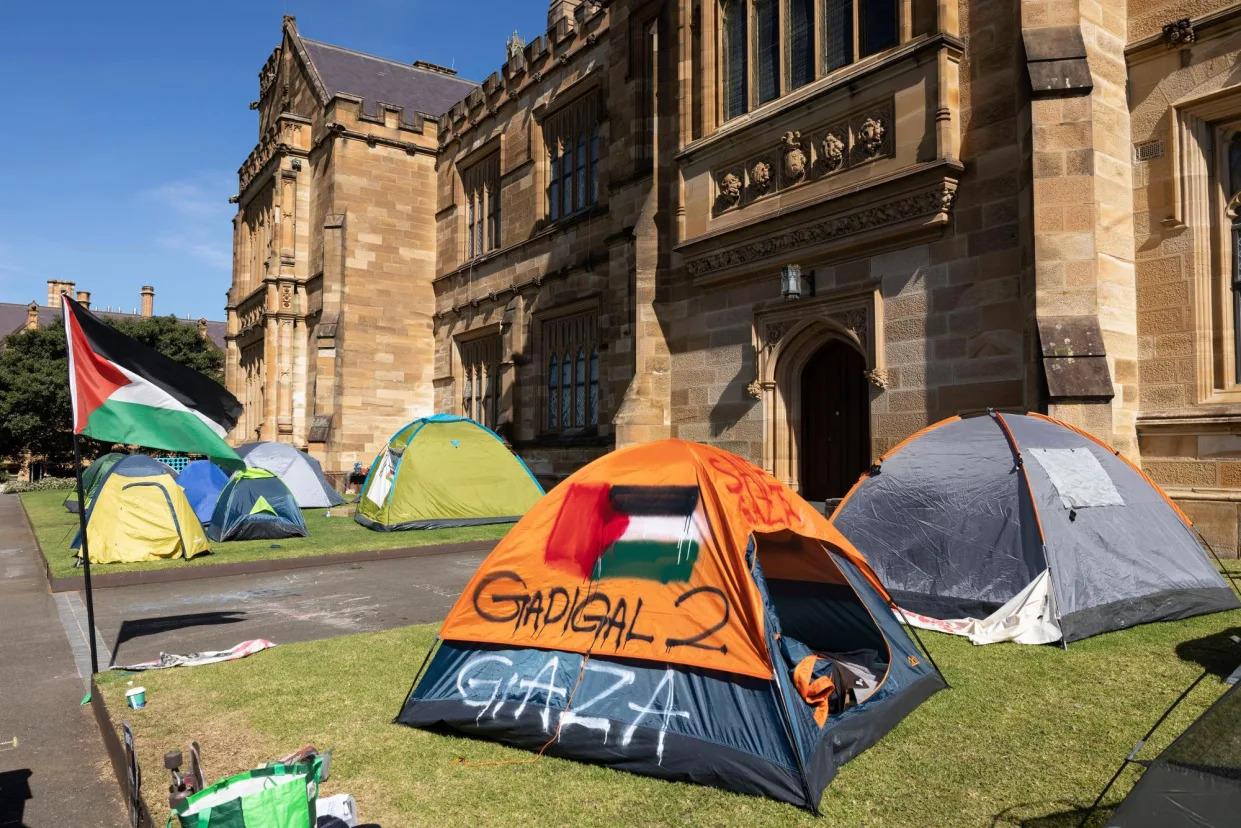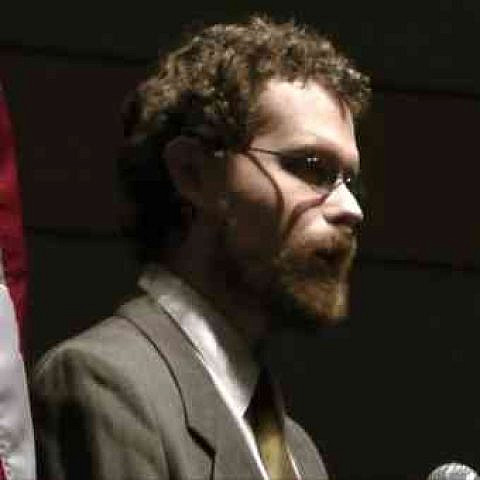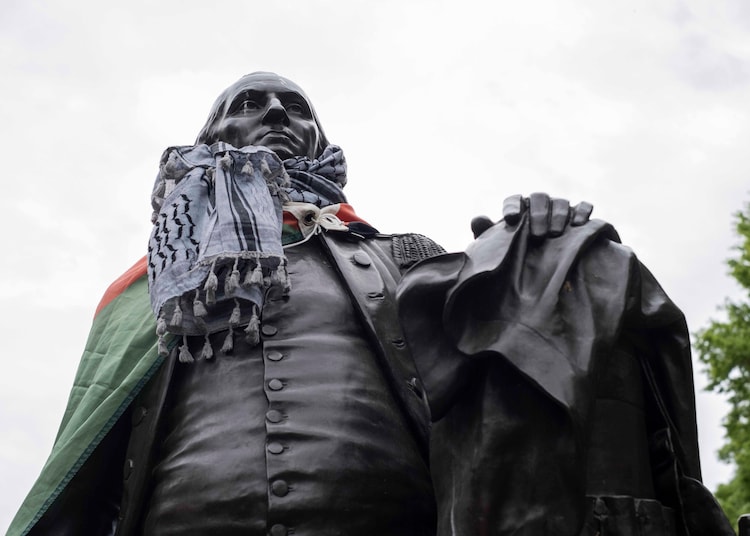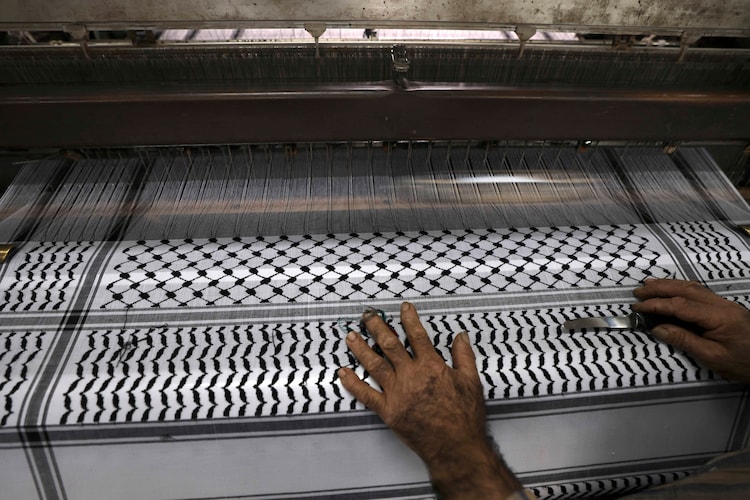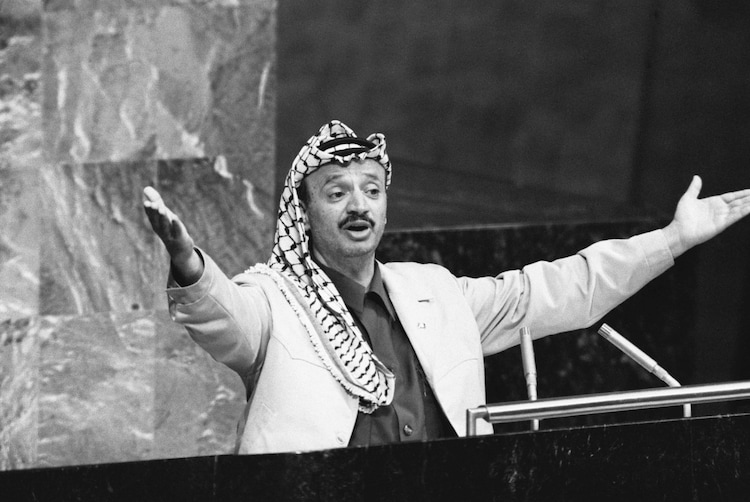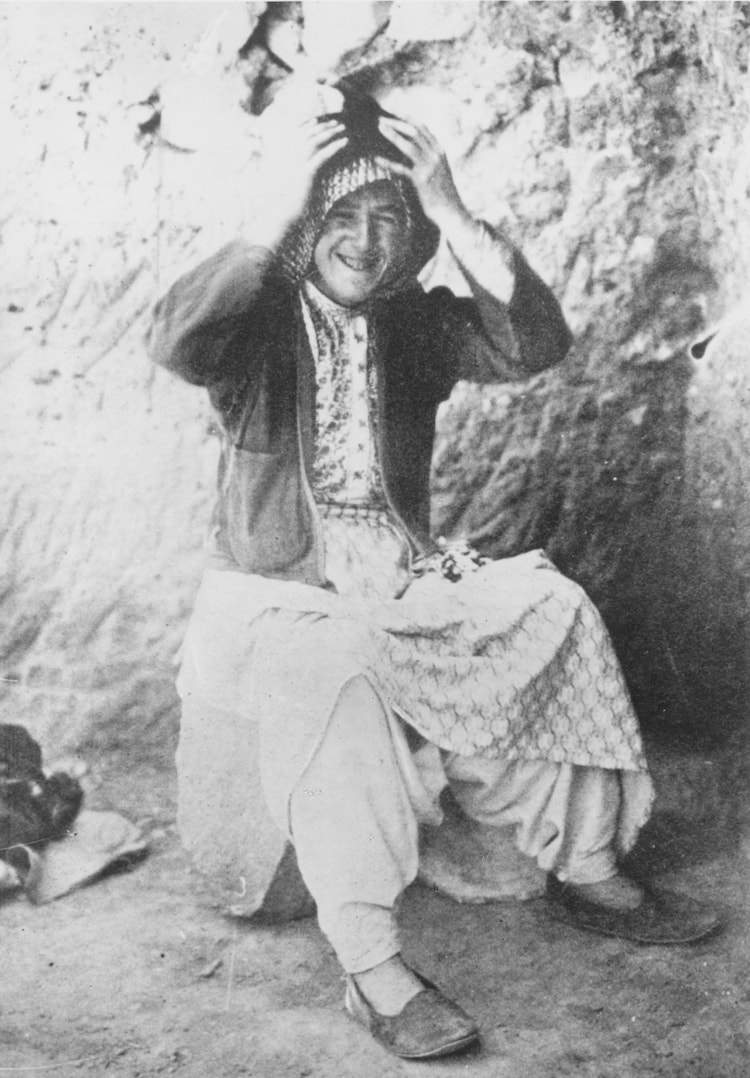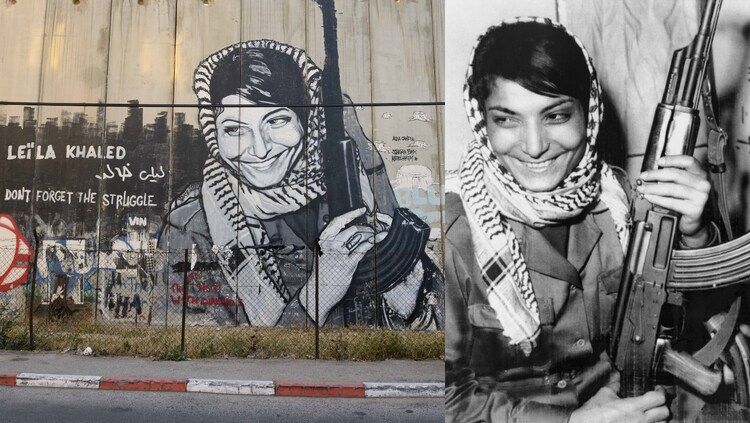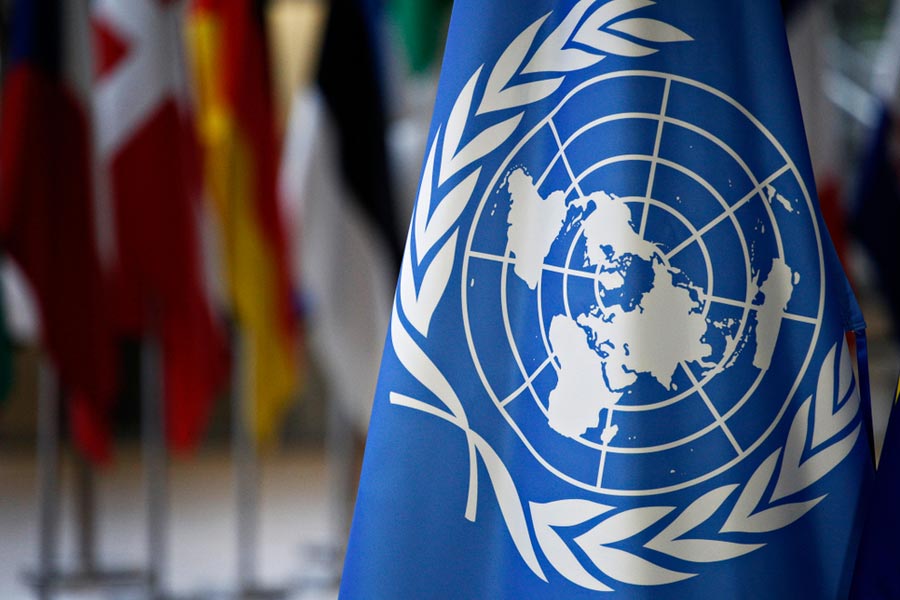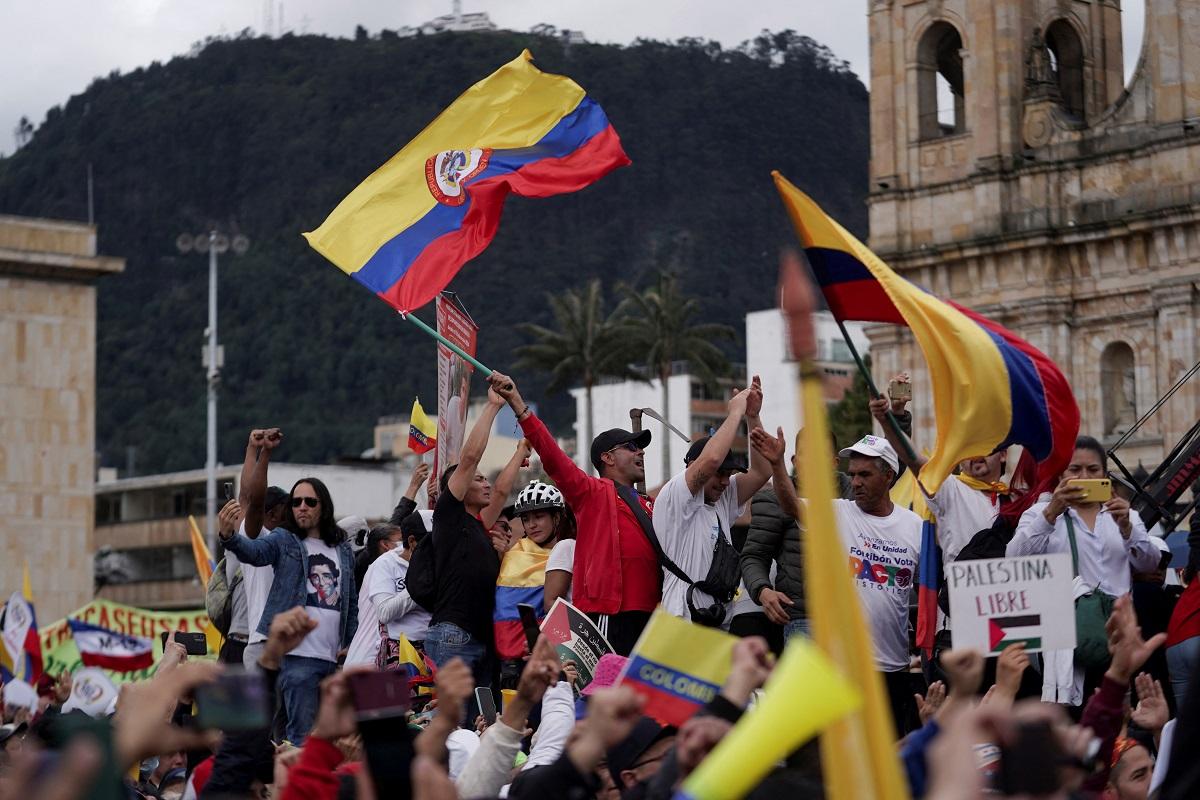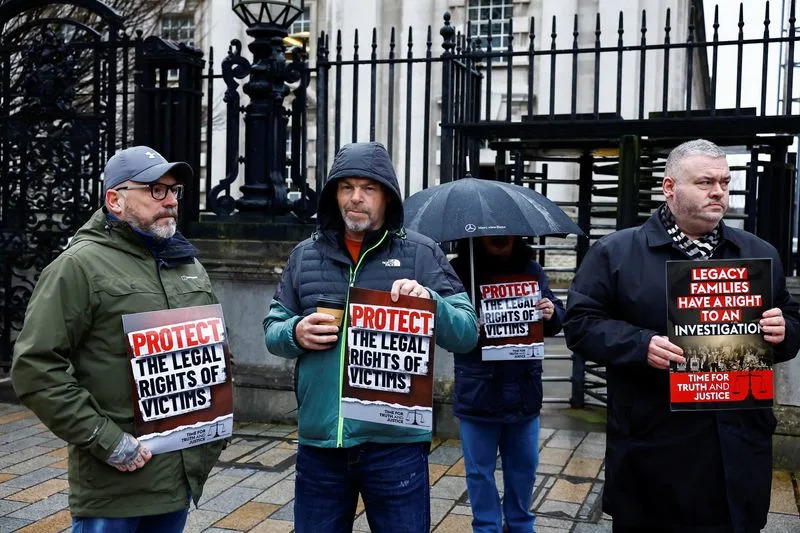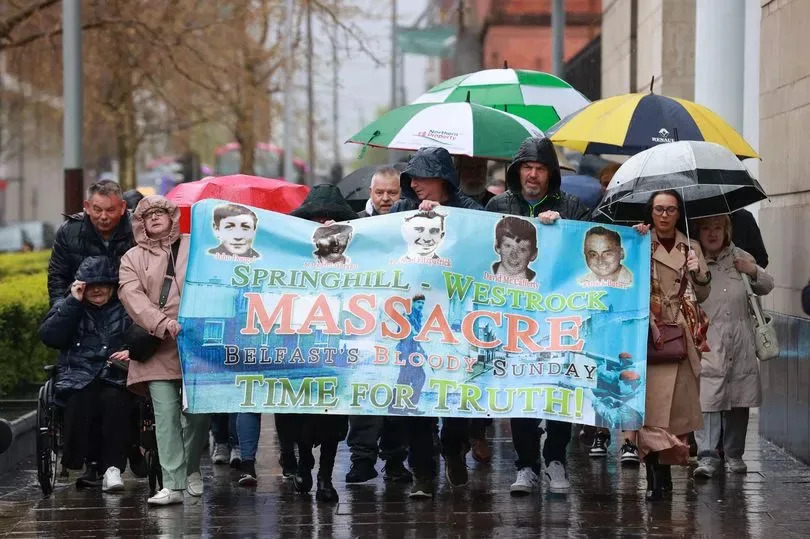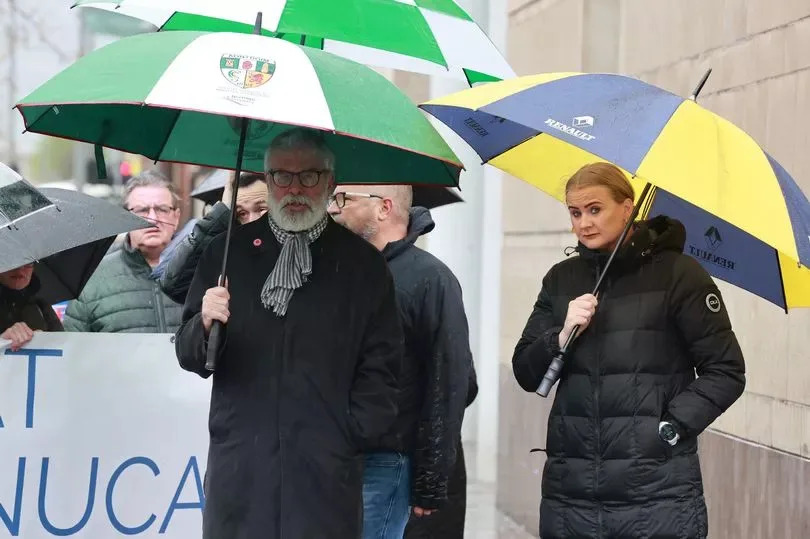Demonstrations had been scheduled to take place in at least six universities as war rages on in Gaza
Matt Mathers,Emma Guinness
1
Students joined pro-Palestine protests and encampments at universities in the UK on Wednesday following violent demonstrations at campuses in the US.
Demonstrations took place at several universities including Sheffield, Bristol, Leeds and Newcastle, and others were expected to join them.
The protests came following violent clashes on the University of California campus between pro-Palestinian protesters and a group of counter-demonstrators, hours after police stormed Columbia University and arrested dozens of students.
At Goldsmiths University in south London, students have been occupying buildings - including the library - for weeks.
On Tuesday, video shared online showed students holding a rally in a courtyard at the university and chanting “no justice, no peace, if you don’t give us justice then you don’t get no peace”.
Students also occupied the library and demanded to meet with senior management to discuss their protests and the war in Gaza.
“I think a lot of people are really inspired by what’s going on in the US,” Samira, a 24-year-old sociology student and member of Goldsmiths For Palestine, told The Independent.
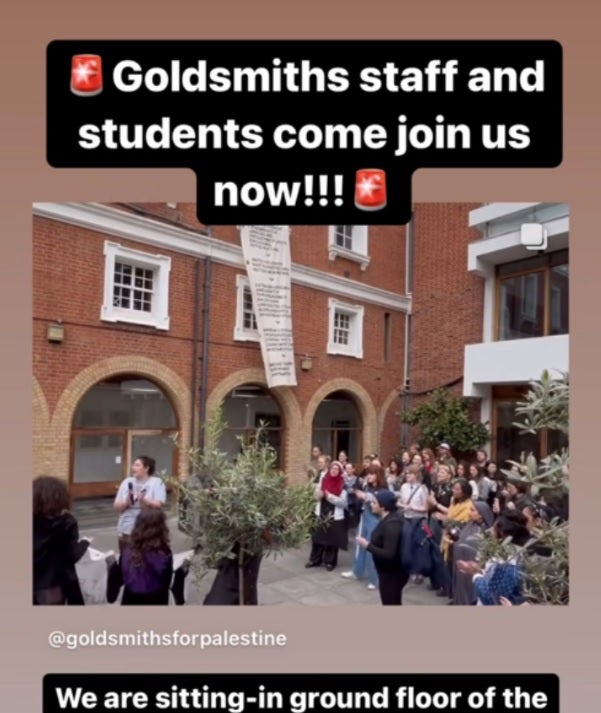
Students hold a pro-Palestine rally at Goldsmiths ( @goldsmithsforpalestine)
“We feel a duty as students to come out and protest when you’re seeing like, fellow students in the US…smashed up by riots, and all of that, but, yeah…I think people are really inspired.”
Students at the University of Bristol, University of Leeds, and Newcastle University set up tents in demonstrations on Wednesday.
Bristol students said they staged the action “in protest of the university’s complicity in Israel’s genocide of Palestinians,” while Apartheid Off Campus Newcastle said its demonstration was to “highlight the institution’s investment strategy and its complicity in the Israeli military’s war crimes in Gaza and the West Bank.”
“We feel a duty as students to come out and protest when you’re seeing like, fellow students in the US…smashed up by riots, and all of that, but, yeah…I think people are really inspired.”
Students at the University of Bristol, University of Leeds, and Newcastle University set up tents in demonstrations on Wednesday.
Bristol students said they staged the action “in protest of the university’s complicity in Israel’s genocide of Palestinians,” while Apartheid Off Campus Newcastle said its demonstration was to “highlight the institution’s investment strategy and its complicity in the Israeli military’s war crimes in Gaza and the West Bank.”
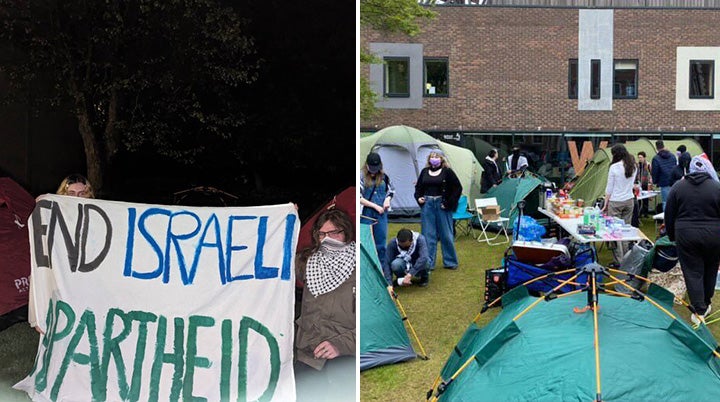
Protests were due to take place in at least six universities (Bristol Student Occupation for a Free PalestineApartheid Off Campus Newcastle/)
In the US, police arrested some 35 people at California State Polytechnic University, Humbold yesterday after pro-Palestinian protesters barricaded themselves inside the dean’s office.
The students had been occupying Siemens Hall since 22 April.
Overnight, hundreds of police officers dressed in riot gear stormed Columbia, where campus protesters had occupied Hamilton Hall since Monday.
They later used a SWAT ramp, attached to the roof of a truck, to enter the barricaded building and 109 people were arrested.
A further 173 arrests were made at the City College of New York, where demonstrations have also taken place.
Pro-Palestine protests take over UK universities just days after police stormed US campuses
By James Saunder
By James Saunder
GB NEWS
Published: 02/05/2024 -
Warwick University demonstrators called for people to 'rise up in unison with fellow students all over the world, from Columbia, NYC, to Paris, to Sydney'
Pro-Palestine student protesters have begun establishing camps at UK universities in an attempt to cause the same kind of sit-in disruption seen at American institutions over the last few days and weeks.
Students at top English universities - Bristol, Leeds, Manchester, Newcastle and Sheffield - have set up tents and marquees, and have hoisted anti-Israel banners and Palestinian flags on buildings and in open spaces.
One of the encampments at a piazza at Warwick University has been in place for almost a week, with student campaign groups claiming Warwick is "continu[ing] to reject our demands to cut ties with genocide", and professing to "rise up in unison with fellow students all over the world, from Columbia, NYC, to Paris, to Sydney".
Many of the demonstrations have called for their universities to cut financial ties with Israel or Israeli companies in light of the country's ongoing military response in Palestine to the October 7 Hamas attacks.

Protesters at Goldsmiths, University of London, have staged sit-ins, while demonstrators at Warwick have established a week-long camp at a campus piazza
At Manchester, protests starting on May 1 have elicited official university responses; while the institution's Chief Operating Officer, Patrick Hackett, said it was "incredibly important that people are able to exercise free speech within the law", he urged protesters not to block access to study and work spaces with exams looming.
While at Goldsmiths, University of London, students established camps overnight at the university library and stuck banners to windows stating "from the river to the sea" and "shut it down for Palestine", claiming they would not leave "until senior management come to face us".
Yesterday's demonstrations followed large-scale "May Day" action across the UK which saw protesters blockade BAE Systems facilities and a government department over their ties to UK arms exports to Israel.
And the university encampments and sit-ins directly mirror those seen at institutions on the other side of the Atlantic; this week, activists camping out at UCLA in Los Angeles, Northeastern University in Boston, and Columbia University in New York have clashed with campus authorities and city police alike.
Published: 02/05/2024 -
Warwick University demonstrators called for people to 'rise up in unison with fellow students all over the world, from Columbia, NYC, to Paris, to Sydney'
Pro-Palestine student protesters have begun establishing camps at UK universities in an attempt to cause the same kind of sit-in disruption seen at American institutions over the last few days and weeks.
Students at top English universities - Bristol, Leeds, Manchester, Newcastle and Sheffield - have set up tents and marquees, and have hoisted anti-Israel banners and Palestinian flags on buildings and in open spaces.
One of the encampments at a piazza at Warwick University has been in place for almost a week, with student campaign groups claiming Warwick is "continu[ing] to reject our demands to cut ties with genocide", and professing to "rise up in unison with fellow students all over the world, from Columbia, NYC, to Paris, to Sydney".
Many of the demonstrations have called for their universities to cut financial ties with Israel or Israeli companies in light of the country's ongoing military response in Palestine to the October 7 Hamas attacks.

Protesters at Goldsmiths, University of London, have staged sit-ins, while demonstrators at Warwick have established a week-long camp at a campus piazza
At Manchester, protests starting on May 1 have elicited official university responses; while the institution's Chief Operating Officer, Patrick Hackett, said it was "incredibly important that people are able to exercise free speech within the law", he urged protesters not to block access to study and work spaces with exams looming.
While at Goldsmiths, University of London, students established camps overnight at the university library and stuck banners to windows stating "from the river to the sea" and "shut it down for Palestine", claiming they would not leave "until senior management come to face us".
Yesterday's demonstrations followed large-scale "May Day" action across the UK which saw protesters blockade BAE Systems facilities and a government department over their ties to UK arms exports to Israel.
And the university encampments and sit-ins directly mirror those seen at institutions on the other side of the Atlantic; this week, activists camping out at UCLA in Los Angeles, Northeastern University in Boston, and Columbia University in New York have clashed with campus authorities and city police alike.
